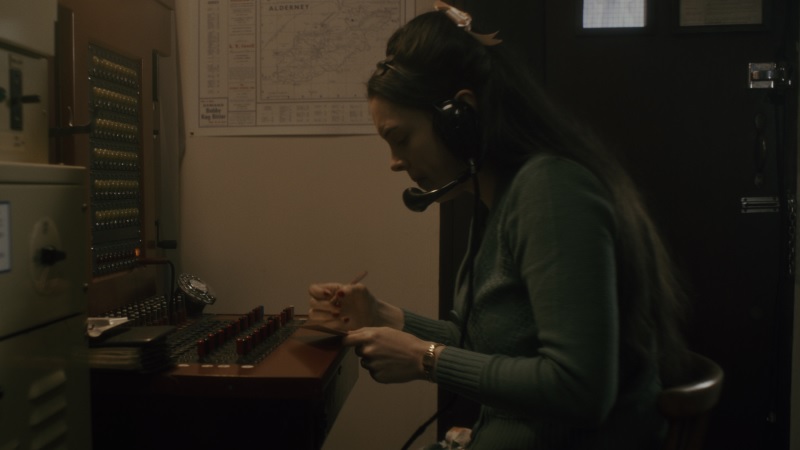On the Line (Pearn, 2023)
The first twenty minutes of Oliver Pearn’s On the Line is pretty swell. With its simple title cards, sepia coloring, and sixties setting, the film looks like a long-lost Hitchcock film. What a stellar use of limited resources to quickly and effectively make an independent film feel claustrophobic rather than cheap.
Victoria Lucie plays Agnes, a telephone operator who maybe, possibly (but of course she did or there wouldn’t be a movie) overhears a crime in progress. Some cryptic comments from a friend calling her at work warning her not to overreact hint at a back story that is probably supposed to undercut our confidence in Agnes’s credibility. Fortunately, that doesn’t delay things too long.
Unfortunately, the film loses direction right about the point that Agnes gets plugged into a police frequency and can hear the events unfolding. At that point, she ceases to be a participant and acts as a surrogate listener. There are plenty of good to great films about listening, The Conversation and The Lives of Others come to mind. Locke even attempted the single-character, single-set gimmick a few years back. The setup here is fine, but the execution is limited. It’s constructed as a radio drama and film is a visual medium. I’m not sure the story would play at all differently on the radio.
Pearn and Lucie do well to keep us engaged as long as they do, but eventually, it starts to feel like a technical exercise rather than a story that finds its best expression in a special form. For example, if it were committed to its narrative, there is no particular reason why it would have to be only a single character on screen. (Those who know Agnes could come by rather than call.) Similarly, if it were committed to the single actor, single-set proposition, some of the indirect lines of communication that allow Agnes (and us) to listen in feel like cheats.
On the Line is Pearn’s feature-film debut, and it’s impressive enough that I would love to hear he got offered a project with fewer budget constraints to see what he could do. But if one compares On the Line to Lifeboat, Rope, or the first act of High and Low, the difference between a director getting a lot out of very and a director with the talent to transcend limitations is apparent. Of course, saying a first-time is not yet Hitchcock or Kurosawa is hardly a fair bar to require him to clear. But one invites comparisons to the masters when one imitates them.

